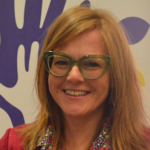Interreligious and Interfaith Studies
Syllabi - Topic: Interreligious and Interfaith Studies - 19 results
Select an item by clicking its checkboxA 2003 course by Jeffrey Carlson at Dominican University "explores some key reasons for, approaches to, issues in and outcomes of Buddhist-Christian interchange and reflection. Emphasis will be on Catholic Christianity and a variety of Buddhist traditions."
A 2011 course by Gerald Schlabach at the University of St. Thomas "(enables students to think systematically about the Christian moral life within the framework of the Catholic tradition, while more broadly engaging current debates in Christian ethics and moral theory."
A 2006 course by Jane Smith at Hartford Seminary "designed to look at the ways in which Christian and Muslim perceptions of their respective religions and their relationships to one another have evolved through history, in conflict and in concord, contributing the conceptual "theological" heritage with which Christians and Muslims operate in the modern world."
A 2012 course by Shannon Craigo-Snell and Kathryn Johnson at Louisville Presbyterian Theological Seminary that introduces seminary students to theology and ethics.
A 2005 course by James Cutsinger at the University of South Carolina focuses on "introduce students to the perennialist school of comparative religious thought" with special attention to "the work of Frithjof Schuon."
A course by Joseph Molleur at Cornell College centered on how Christian theology responds to "the ongoing existence of a multiplicity of religions."
A 2012 course by Mindy McGarrah Sharp at Phillips Theological Seminary seeks to "establish and build on a basic framework of Christian ethics in order to study models of Christian moral reasoning and responding in the face of violence over a variety of contexts."
A 2014 course by Benjamin Wall at Houston Graduate School of Theology on various "ethical systems and theories in light of biblical and traditional Christian perspectives and moral norms, with reflection upon several contemporary social issues."
A 2010 course by Gerald Schlabach at the University of St. Thomas "is an introduction to the principles, methods and topics of Christian theological ethics."
A 2014 course by Charles Bellinger at Brite Divinity School offers an "examination of the historical development of major themes in Christian theological ethics from the early Church up to early modern times."
A 2014 course by Cheryl Overmeyer at the University of Notre Dame explores Christian responses to "in what does our happiness consist?"
A 2006 course by Yehezkel Landau at Hartford Seminary Is an " intensive training program offers a practical foundation for mutual understanding and cooperation among Jews, Christians, and Muslims."
A course by Dennis Sasso and Clark Williamson at Christian Theological Seminary "is about learning to listen, both to the Christian tradition and how it talked of and treated Jews as an alienated other, as the shadow side of Christianity that has to be rejected, and to Jews whom we need to learn to listen to."
A 2013 course taught by Reid B. Locklin at University of Toronto "offers an advanced introduction to religious diversity as a feature of contemporary Christian life, thought and practice." The course includes a service learning in the city of Toronto.
A 2013 course by Marti Steussy and Frank Burch Brown at Christian Theological Seminary surveys "both religious diversity itself and a variety of possible responses to it."
A 2010 course by Michael Andres at Northwestern College is "an exploration of religious pluralism."
A course by Judith Berling and Jeff Richey at the Graduate Theological Union.
A 2010 course by Michael Andres at Northwestern College offers "a biblically based, theologically and historically informed study of both personal and social moral issues from a Christian perspective."
A 2011 course by Christopher Elwood at Louisville Presbyterian Theological Seminary "students to the global history of Christianity. Special attention will be paid to formation of Christian identity and theological expression in relation to other religious traditions."

